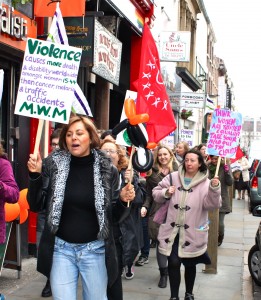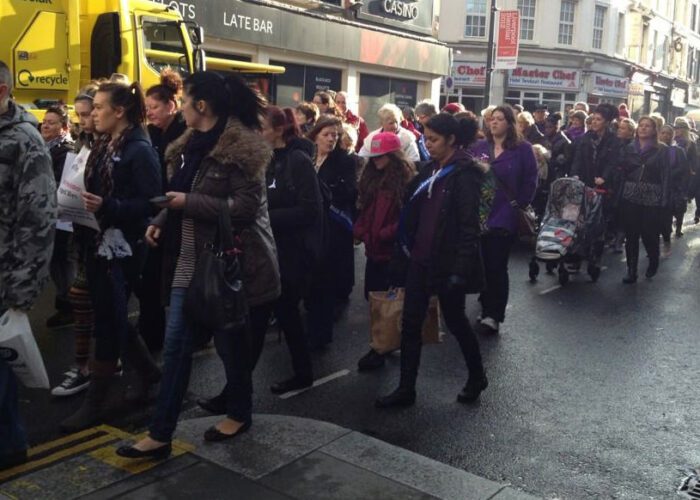
A scheme that allows people to check if their partners have a history of domestic violence is being rolled out in Merseyside and across the country in the coming weeks.
The introduction of the Domestic Violence Disclosure Schemes (DVDS) follows what police say was a ‘successful pilot’ by four other police forces, including in Manchester.
DVDS gives people the right to ask for information from various agencies, including the police, about a partner’s previous convictions, cautions, reprimands or final warnings for any offence of violence.
It also gives the agencies which have responsibilities for safeguarding the public the power to disclose under the ‘right to know’ element of the scheme if the information is relevant to their safety, with the aim of reducing incidents of domestic violence among both men and women.
Jane Kennedy, Police and Crime Commissioner for Merseyside, told JMU Journalism: “Domestic abuse is an issue that still largely remains behind closed doors. I am committed to bringing it out into the open, tackling it and giving a voice to survivors.
She said the law could help women to escape an abusive situation before it spirals out of control and added that “ultimately it could save the lives of vulnerable women.”

The scheme is also referred to as ‘Clare’s Law’ following the murder of Clare Wood in Manchester in 2009. She was killed by a new partner who had three previous harassment convictions she hadn’t known about.
A Coroner’s report into Clare’s death recommended that information like this should be made available to those who request it, so they can make informed decisions about their relationships.
Additionally, new powers for the police are to be introduced in June which will allow police to remove allegedly violent partners from the home immediately after a domestic violence complaint is made.
The aim is to give the complainant time to decide what to do next, without the threat of their attacker being able to return home after their release from custody. Research has shown that the hours after a domestic violence report is made are when the complainant is most at risk of reprisals from their attacker.
However, the programme has its sceptics. Jacqui Nasuh of Merseyside Domestic Violence Services claims that the scheme is more trouble than it’s worth and could give women a dangerous false sense of security.
She told JMU Journalism: “If women meet somebody and they want to find out if that person is a perpetrator, how do they do it? If they meet somebody, they’re not going to ask for their full name, date of birth, address or possible previous addresses, so how are they going to obtain the information needed? How do they even know if it’s his real name, and will they be even willing to pass the information over?
“If women meet somebody and they like them, they’re not going to want to believe that they may have a history of domestic violence. As well as that, we’ve seen many, many cases where women have gotten very serious injuries but haven’t pressed charges. Just because the information might come up clean on somebody doesn’t mean that they aren’t abusive. It’s dangerous to give women a false sense of security.”

